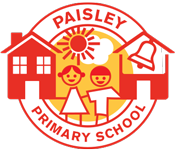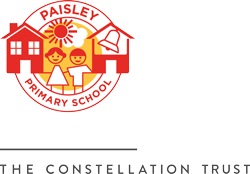

Our Curriculum Offer
![Paisley 2021 – [c] Jon Robson 2021 – -0102](https://paisleyprimaryschool.org.uk/wp-content/uploads/2021/07/Paisley-2021-c-Jon-Robson-2021-0102-1024x681.jpg)
At Paisley Primary School, ‘We value every child in our community: we want them to aspire to the greatest things.’
Our curriculum drivers underpin the curriculum at Paisley Primary School:
READING
VOCABULARY
ASPIRATION
COMMUNITY
INCLUSION
We believe these drivers are exactly what our children need to make good progress academically, personally and socially. We want Paisley children to be excellent citizens of our community in the city of Hull. We recognise that many of children join our school with knowledge and skills below national expectations and therefore we ensure that we prioritise reading, oracy and the development of vocabulary from the very start of school. Our curriculum drivers will ensure that all our children aspire to the greatest things and are successful in their learning, across the curriculum.
Reading:
- At Paisley, our children learn to read, they read to learn and they love to read. Our curriculum prepares pupils to read fluently and with confidence. In EYFS and Key Stage 1, the primary focus for our pupils is to develop accuracy and speed in decoding sounds and words. As they move through school, our children read and discuss a range of progressively more complex texts.
- Our Paisley Reading Spine contains high-quality literature with a wide range of language and structures for our pupils to explore. This ensures our pupils are enthused by new books and have the prior knowledge, fluency and confidence to comprehend and enjoy them.
- In every classroom, every child is read to daily to gain experience listening to books from different times, places and genres. Well chosen stories encourage our children to think deeply, to reflect and consider others.
- Our children have the opportunity to read across all subjects to acquire knowledge, carry out research and unlock learning across the curriculum.
Vocabulary:
- At Paisley, we recognise that some of our children join us with vocabulary skills below their peers. Therefore, developing oracy, reading and vocabulary is a priority in our curriculum, right from the start. We see our role as ensuring that all our children have the confidence to read, use and analyse the richness of the English language across all subjects.
- Staff model and explicitly teach vocabulary, with language being an integral teaching point of all learning sequences. Vocabulary is a planned essential component of all curriculum documentation across all subjects. Taught vocabulary is specified so that all children develop a deep understanding of curriculum areas and can use high-level vocabulary to communicate their learning with clarity.
- We integrate both subject-specific and tier two vocabulary so that pupils can discuss and evaluate their learning at all levels. We want our children to develop the confidence to use and manipulate language across different forms, structures, and for a variety of purposes, audiences and levels of formality.
Community:
- At Paisley, our pupils feel valued and special in our community. Our six golden rules bring our community together and ensure that our pupils grow as excellent citizens. Our curriculum teaches cooperation, positive listening skills and mutual respect for their peers and adults. Good manners are modelled and encouraged and we support our pupils to become proud members of the school and local community.
- Our children are taught an awareness and understanding of different faiths, beliefs, ways of life and cultures; they demonstrate respect and understanding of difference. At Paisley, difference is acknowledged and celebrated – children are proud of the things that make themselves and their peers unique.
- Through a planned programme of trips and visits, our children develop knowledge of where they live. Our curriculum develops pupils’ awareness of British Values, their rights, responsibilities and roles as stewards of our community. At Paisley, community means growing citizens of the future – young people who are ready to work with others, who embody respect and live out a belief in hope for a bright future.
Aspiration:
- At Paisley, we teach all children to be prepared for the world of work, to contribute effectively to society and develop the self-confidence to make informed and thoughtful choices in all aspects of life. Our curriculum teaches pupils to be confident, resilient and proud of their achievements. Our Paisley Principles encourage all children to develop stamina in their learning, to work very hard and to meet high standards across the curriculum.
- Our four house teams: The Unstoppables, Extraordinaires, Incredibles and Astonishers create a culture of aspiration and high reward in our school, celebrating pupils who demonstrate high standards of learning behaviour and achievement.
- We teach children to be responsible learners who communicate effectively in spoken, written and virtual forms. We give our pupils the chance to discuss, present and share their ideas and views in all subjects. As they move through school, our children develop an understanding of the world of work; learning about careers and opportunities available locally and beyond our city.
Inclusion:
- At Paisley , every child in our school community is valued. We ensure that barriers to learning are identified and strategies to meet an individual’s needs are prioritised. In the classroom, pupils’ work is targeted, tailored and adapted to ensure all pupils meet high standards, make progress and aspire to the greatest things. Intervention programmes ensure that children have the opportunity to catch up and narrow the gaps quickly, especially in reading.
- Our curriculum ensures that disadvantage does not inhibit learning or success. Personalised attendance plans, behaviour plans and our one-page profiles for pupils with additional needs ensure that children’s needs are met on a daily basis. Vulnerable groups are given the highest priority; we build on pupils’ strength and potential through systems of high support and high reward.
- Our golden rules ensure that respect lies at the core of school life. Our Jigsaw curriculum, assembly programme and Opal Play initiative are prime examples of how difference is taught and understood by our pupils through our curriculum offer.
The Curriculum – our approach at Paisley:
Subject Specific Sequencing:
Each subject discipline has been planned to ensure that knowledge and skills are sequenced form Early Years to Year 6.
Key Concepts:
For each subject, a set of key concepts have been identified. These are the subject specific ‘big ideas’ that children will learn about, return to and revisit and they progress through the school. They will have opportunities to link new learning to prior knowledge within a key concept to build a rich and deep knowledge of the big ideas in each subject. Knowledge is empowering and provides a foundation for success. We accept that the more children know, the more they can learn. The subject overviews provide specific, progressive objectives that allow teachers to be precise in planning. Retrieval practice forms part of regular teaching to allow pupils to secure long term knowledge.
Second Order Concepts:
These relate to the transferable knowledge that pupils can use and apply across different curriculum subjects. For example, in all areas of the curriculum, children will build an understanding of ‘significance’; learning about significant authors, artists, scientific discoveries, pieces of music, figures and events from history etc.
Below is a link to our whole-school curriculum overview which outlines the key concepts and progressive objectives taught across all national curriculum subjects:
The linked document below outlines what our curriculum drivers look like in all aspects of school life here at Paisley.
The document below outlines the variety of trips and visits that our children have access to over the course of our two-year curriculum cycle.
Our classroom non-negotiables below show our high expectations – all areas of our school are welcoming and consistent for our children.
Attached below are our Paisley Principles. Our principles for behaviour, teaching and environment stem all aspects of school life here at Paisley.
Lessons across the curriculum at Paisley follow the FITLAC lesson structure. Every lesson begins with a fast start, there are always opportunities built in for retrieval of core knowledge and the chance to celebrate pupil achievement through our behaviour curriculum- the attached document outlines this structure in further detail.
KS1 Paisley Cycle A and B Reading Spine
KS1 Reading Spine
Our Key Stage One reading spine is a combination of progressively complex texts with a wide range of language and structures for our pupils to explore throughout the reading curriculum. Each half term, reading learning begins with non-fiction to ensure that children acquire the knowledge and understanding to access stories with increasing confidence. Our reading pleasure for spine is unique to Paisley – everyday, our children are able to listen to high-quality stories that deepen our children’s understanding of aspiration, community and inclusion – three of our curriculum drivers.
KS2 Paisley Cycle A and B Reading Spine
KS2 Reading Spine
Our Key Stage Two reading spine builds on from Key Stage One and is a combination of progressively complex texts with a wide range of language and structures for our pupils to explore throughout the reading curriculum. Each half term, reading learning begins with non-fiction to ensure that children acquire the knowledge and understanding to access stories with increasing confidence. Our reading pleasure for spine is unique to Paisley – everyday, our children are able to listen to high-quality stories that deepen our children’s understanding of aspiration, community and inclusion – three of our curriculum drivers.
Reading in the EYFS
The attached documents below outline the stories, traditional tales, nursery rhymes and texts that are taught in our EYFS unit across our two-year curriculum cycle:
